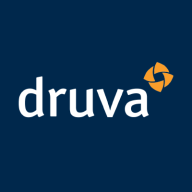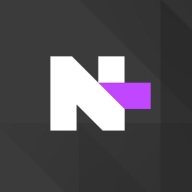

N-able Cove Data Protection and Druva Phoenix compete in the cloud-based backup and recovery domain. N-able Cove has an edge in user-friendly deployment, while Druva Phoenix shines with comprehensive features for complex enterprise needs.
Features: N-able Cove offers continuous backup, seamless IT integration, and a user-friendly interface. Druva Phoenix provides global deduplication, automated workflows, and enhanced data compliance.
Room for Improvement: N-able Cove could benefit from more advanced data compliance features, broader customization options, and enhanced backup speed. Druva Phoenix may improve its ease of use, reduce deployment complexity, and lower its learning curve for new users.
Ease of Deployment and Customer Service: N-able Cove is quick to set up with minimal configuration and responsive support. Druva Phoenix involves a more extensive setup process but offers comprehensive onboarding and robust technical support.
Pricing and ROI: N-able Cove's pricing is budget-friendly with predictable costs, suitable for smaller organizations. Druva Phoenix, though more expensive, offers long-term value with its advanced functionalities, appealing to enterprises focused on high ROI and data protection.


Druva Phoenix is a comprehensive cloud-based data protection and management solution that enables organizations to securely backup, recover, and manage their data across endpoints, physical servers, virtual machines, and cloud applications. With its scalable and flexible architecture, Druva Phoenix simplifies data protection and eliminates the need for traditional backup infrastructure.
By leveraging the power of the cloud, Druva Phoenix offers organizations a cost-effective and efficient way to protect their critical data. It provides automated backup and recovery capabilities, ensuring that data is always protected and easily recoverable in the event of a disaster or data loss. With its global deduplication and compression technology, Druva Phoenix minimizes storage requirements and reduces costs.
Druva Phoenix also offers advanced features such as point-in-time recovery, allowing organizations to restore data to a specific point in time, and granular file-level recovery, enabling users to recover individual files or folders. Its intuitive web-based console provides a centralized view of all protected data, making it easy to manage and monitor backups across the entire organization.
In addition to data protection, Druva Phoenix offers comprehensive data management capabilities. It enables organizations to gain insights into their data through advanced analytics and reporting, helping them make informed decisions and optimize their storage resources. Druva Phoenix also supports legal and compliance requirements by providing eDiscovery capabilities and ensuring data is retained and disposed of according to regulatory guidelines.
With its cloud-native architecture, Druva Phoenix offers organizations the flexibility to protect and manage their data across a wide range of environments, including on-premises, remote offices, and cloud applications such as Microsoft 365 and Google Workspace. It seamlessly integrates with popular cloud platforms like AWS and Azure, allowing organizations to leverage their existing cloud investments.
Cove Data Protection, from N-able, is a comprehensive solution designed to safeguard critical business data. It offers a range of features including backup and recovery, disaster recovery, and endpoint protection. With automated backups and flexible scheduling options, it ensures data is protected and easily recoverable.
The solution also includes advanced security measures such as encryption and ransomware detection to prevent unauthorized access and data breaches. Cove Data Protection provides seamless integration with various platforms and offers centralized management for efficient monitoring and control.
With its user-friendly interface and robust capabilities, Cove Data Protection is an ideal choice for businesses seeking reliable data protection.
We monitor all Cloud Backup reviews to prevent fraudulent reviews and keep review quality high. We do not post reviews by company employees or direct competitors. We validate each review for authenticity via cross-reference with LinkedIn, and personal follow-up with the reviewer when necessary.